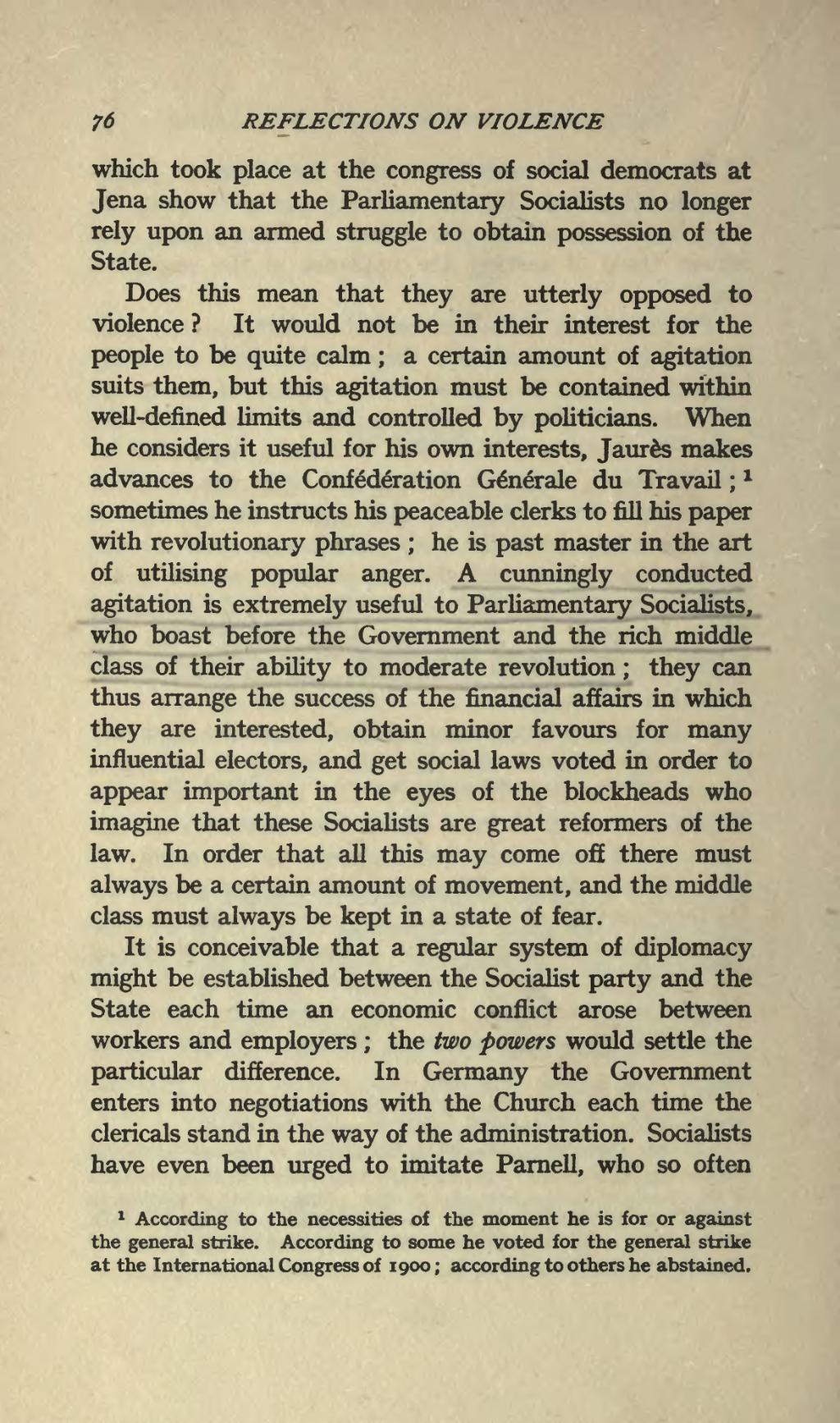which took place at the congress of social democrats at Jena show that the Parliamentary Socialists no longer rely upon an armed struggle to obtain possession of the State.
Does this mean that they are utterly opposed to violence? It would not be in their interest for the people to be quite calm; a certain amount of agitation suits them, but this agitation must be contained within well-defined limits and controlled by politicians. When he considers it useful for his own interests, Jaurès makes advances to the Confédération Générale du Travail;[1] sometimes he instructs his peaceable clerks to fill his paper with revolutionary phrases; he is past master in the art of utilising popular anger. A cunningly conducted agitation is extremely useful to Parliamentary Socialists, who boast before the Government and the rich middle class of their ability to moderate revolution; they can thus arrange the success of the financial affairs in which they are interested, obtain minor favours for many influential electors, and get social laws voted in order to appear important in the eyes of the blockheads who imagine that these Socialists are great reformers of the law. In order that all this may come off there must always be a certain amount of movement, and the middle class must always be kept in a state of fear.
It is conceivable that a regular system of diplomacy might be established between the Socialist party and the State each time an economic conflict arose between workers and employers; the two powers would settle the particular difference. In Germany the Government enters into negotiations with the Church each time the clericals stand in the way of the administration. Socialists have even been urged to imitate Pamell, who so often
- ↑ According to the necessities of the moment he is for or against the general strike. According to some he voted for the general strike at the International Congress of 1900; according to others he abstained.
